Last Year in Liquid
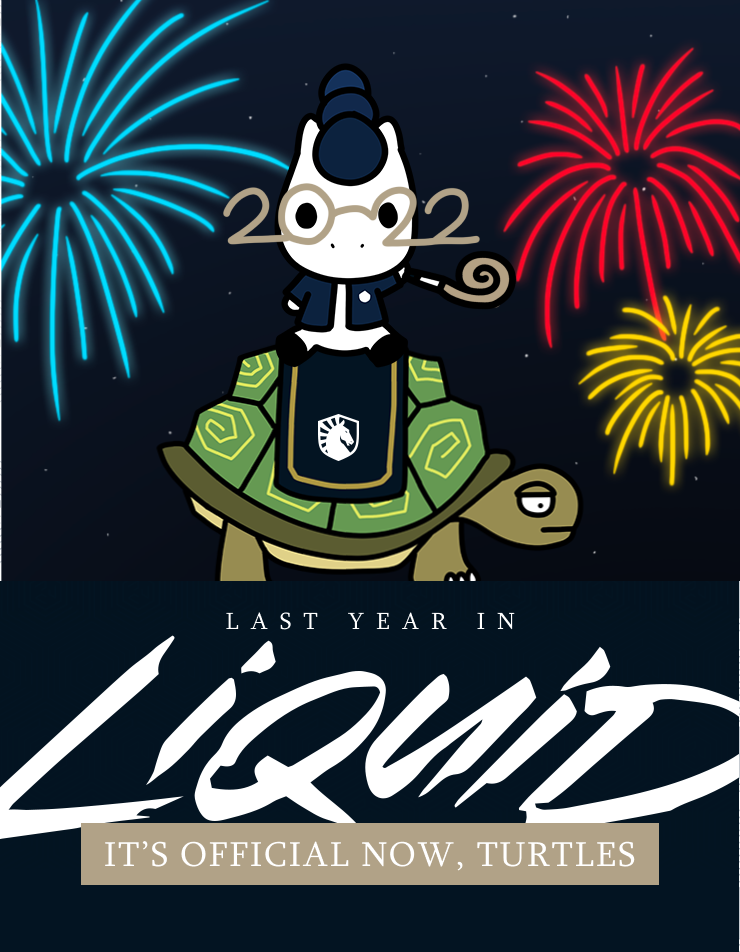
Last Year in Liquid
Happy Monday folks,
I always knew I wanted to end the year with a retrospective look at my favorite team in the world. But as I started drafting this, I got a little stuck on what exactly I wanted to say. I mean I got this gig because I wrote a weekly post on reddit dishing on Team Liquid's competitive results and upcoming schedule.
I quickly discarded the idea of following that format.
The only thing worse than reading an exhaustive, year-long list of results for twenty-odd rosters is writing it. So I started thinking about different ways to write "This Year in Liquid." I considered breaking it down month-to-month, but I thought that would get way too long. I thought about tracing several of our rosters through the year, framing their seasons as a narrative–sort of a hero's journey. I even considered comparing them to some of the classics. But I didn't think the world was ready for the tragedy of Tactical and Eurydice.
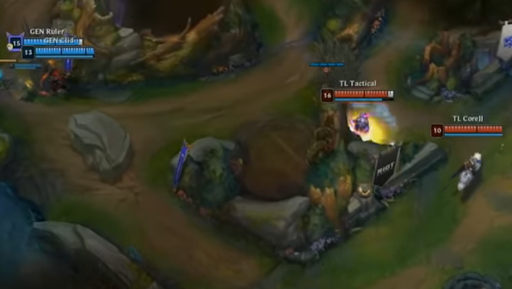
(Dreams are sweet until they're not; men are kind until they aren't; flowers bloom until they rot and fall apart.)
The upshot of all this circumspection is that I've spent the last couple weeks really thinking about what it means to have a successful year. Winning titles is obviously the most important factor in measuring our success, but with all respect to Vince Lombardi, winning is not the only thing.
At its very core, Team Liquid is rooted in community. From its foundation as a Brood War message board to its growth into a global esports organization, Team Liquid depends on regular folks who dedicate their time and energy to building and maintaining the community they care for. Without passionate people, none of this would be here. So for Liquid, engagement has always mattered—with the fans, with the competition, with the world.
I should note now that I don't intend for this to be some kind of opinion piece on whether or not Team Liquid had a successful year last year. I'm also not going to insult you by asking you to believe that I can give an objective take on the subject. I'm about as big a homer as they come, decked-out in regalia, and oozing blue hopium from every pore of my body. If I were in your shoes, I wouldn't trust me either. Instead, I hope to offer a new perspective on Liquid's results, shining a light on some of Liquid's lesser-followed rosters and players, and arguing that not only did Liquid have a great 2021 competitively, but it also made the community better than it was last year.
Competition
For Team Liquid, like so many people across the world, 2021 brought a mixed-bag to the table. The Good: Alanzq won the first ever Legends of Runeterra World Championship. In StarCraft II, Clem had a remarkable year, winning two DreamHacks, and placing 2nd in another. And between Rapha's continued dominance in Quake, the Rainbow Six team's second place finish at its world championship, and VALORANT's semi-final run in Champions, Liquid achieved a lot of FPS results we should be proud of.
But on the other hand, our DotA team wasn't able to qualify for TI for the first time since 2015—a massive fall from grace, especially considering the fact that Liquid placed 2nd at the last TI in 2019. On top of that, for the fourth year in the row, our League team failed to escape groups at the World Championship.
In other ways, Liquid's results this year felt a little ambiguous. At times, our PUBG squad looked like the best team in the world. We went into the final lobby of the Global Championship as front-runners, and looked razor-sharp in the first two days. But then we fell apart on day three and slipped down to 8th. Objectively, that's a great finish for a 32-team world final, especially given the caliber of the other teams that were there. But our expectations can spoil reality. Like a VALORANT team that was undefeated after Masters Berlin—until it wasn't.
And for some, 2021 brought redemption. Hbox started the year online, facing whispers that he lost his touch—that he was washed up. But once he got back on LAN, Hungrybox re-established himself as one of the best melee players in the world, and he reminded the community why they call him a god. He's yet to ascend back to his full celestial form, but he's silenced the doubters that thought he'd fallen from the top 10. In September, robinsongz put up the most dominant TFT performance in the short history of the game in the NA Regional Finals, qualifying to the world championship by winning five of the six lobbies he played in.
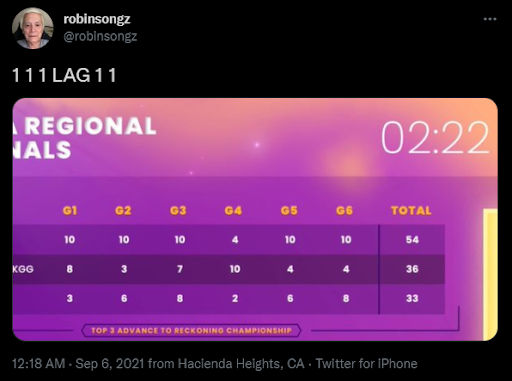
There are so many stories to tell from this year, hundreds of tournaments, thousands of moments of ecstasy, euphoria, anxiety, grief. They'd never fit in a post like this. So let's zoom out, and distill the magic of esports into discreet, quantifiable parts—drops of Liquid we can tally as they pitter patter into the bucket of 2021.
2021 by the Numbers
We begin our journey into a completely arbitrary measurement of Team Liquid's results by looking at the pure numbers. Starting at the top, one way to measure Liquid's success is to look at the very top tournaments. Across all esports, the rosters for Team Liquid qualified for the vast majority of world championships in their respective games. Now as I count, Team Liquid has competitors in eighteen different esports. Liquid qualified for the world championship—or the biggest tournament of the year in fourteen of those games. On top of that, Team Liquid is the only organization in the world to qualify for the world championship in all four RIOT titles. Only three other teams qualified to two of RIOT's world championships: Cloud9 (VALORANT and League), Fnatic (same), and—incredibly—a team called Oslow Esport (TFT and Legends of Runeterra).
Of all these world championships, only Alanzq brought home gold, winning the first ever Legends of Runeterra World Championship in September. Liquid`Siege grabbed the only second place finish of our various world finals at the Six Invitational 2021 in May. And between the VALORANT squad, Egor in Clash Royale, and rapha in Quake, Team Liquid reached the semi-finals in three world championships. Hbox, Dabuz, and Clem tied for 5th place in their respective top tournaments, and PUBG finished the year 8th out of the 32 best teams in the world. I guess you could call that a quarterfinal finish too.
It's worth noting that not all eighteen esports have formal world championships; in particular, Melee, Ultimate, CS:GO and StarCraft II all have decentralized tournament organizers, meaning that there is no official world championship like The International or Worlds. And Fortnite and Rocket League each put together multiple major events, but no single world final. For these, I kind of arbitrarily picked based on the qualification process and the prize pool. For Melee and Ultimate, the SWT Championships; for StarCraft, IEM Katowice; for CS:GO, the Stockholm Major.
Tracking Liquid's qualification and placement to world-final-esque tournaments is a useful way to measure the quality wins, at least in part. But across the gamut of esports we compete in, Liquid also put up an impressive year of results in terms of sheer quantity. Over the course of 2021, Team Liquid placed first in 26 events, earned 18 silver medals, and 25 semi-final or third place finishes. These results account for tournaments that Liquipedia classified as 'premier' or 'major,' as well as a couple lower-tier tournaments with sufficiently high stakes, like robinsongz 2nd place finish at the TFT Mid-Set Finale.
Lastly, tournament winnings also provide a useful measuring stick for success. It may seem tacky, but the prize pool at a tournament often speaks to its prestige. It feels foolish to claim that an organization that consistently wins the big tournaments isn't successful. There's also something primal in our brains that attracts us to the big bucks. I include this metric last however, because tournament earnings will never tell the full story, and big prizepools can dig a hole that will swallow all the other legitimate measurements of success if you're not careful. The Smash scene does not pay out particularly large prize pools, but it's still an important part of the esports ecosystem. If total winnings became the final say in an organization's success, the most successful esports org would be whoever won The International that year.
This year, Liquid won nearly $2.6 million in prize money. Surprisingly to some, the Rainbow Six Siege team put up the preponderance of these earnings, finishing the year with $594,411 in winnings. The vast majority of this came from Liquid's 2nd place finish in the Six Invitational 2021. CS:GO followed the R6 Siege squad , chiming in with $381,000 in winnings of their own. Between Liquid's LCS squad and Academy, League of Legends finished 2021 with $332,844. And pivoting back to shooters, our Fortnite players finished the year with $319,550 in winnings, PUBG landed with $265,357, and VALORANT picked up $256,834. Our StarCraft II squad contributed to the total with a death-by-a-thousand-papercuts strategy, with multiple players placing in almost 30 events to top out at $101,261.29.
In full candor, these data are incomplete. The Smash scene does not do a good job disclosing how prize pools are allocated, so HBox's 3rd place finish at Riptide means that he got some portion of the $7,380 prize pool, but the TOs did not disclose how much. On top of that, Liquid's players competed in a massive amount of minor tournaments this year, particularly Cash Cups in Fortnite and ESL Open Cups in StarCraft II. I did not include these tournaments because, frankly, there are about a billion of them, and it was way too much work. For a little perspective, Clem won 37 minor tournaments in 2021, and he competed in a lot more. And he's just one of Liquid's StarCraft players. The collective prize money for these minor tournaments almost certainly pushes Liquid over the edge of $2,600,000, but I would be surprised if it climbed much higher than that.
2021 Roster Moves
Now that I've exorcized the data demons from my brain, let's talk about what really makes Team Liquid shine—its players.
Steve and Victor haven't been shy about their goals. They've never balked at going after the best players in the world, and investing in a world-class support system for them. Liquid continued this trend in 2021, making aggressive roster moves throughout the year. The changes yielded mixed results.
In CS:GO, adding Fallen and eventually bringing back AdreN to coach ultimately led to widely publicized communication issues for the CS:GO roster. But despite the problems, Liquid still managed to make the semi-finals in the IEM World Championship, beating Na'Vi and Vitality to get there. And even after we became a dead roster walking, Liquid`Counterstrike still kept it close with the best teams in the world.
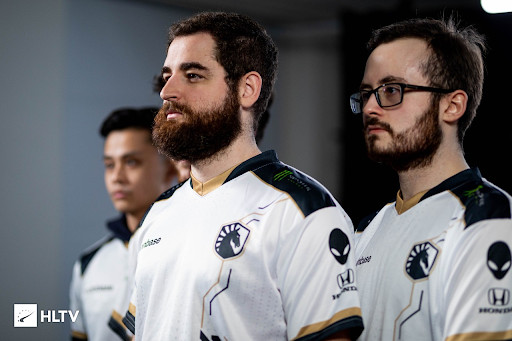
Before our roster leaks, I'm snapping off your winning streak; got no time to speak, I'm a dead team walking.
Between BLAST Fall Finals and the BLAST World Final, Liquid–communication issues notwithstanding—beat Na'Vi, NiP, and Astralis in best-of-threes, and took maps off Gambit and Heroic as well. A dead Team Liquid roster managed to finish fourth in the World Final, and despite the bittersweet parting of the roster, that's a remarkable finish.
Liquid's League of Legends squad overcame its own adversities, with a heaping dollop of help from our stunning academy roster. This year, we signed Santorin, fresh from his 2020 World Championship performance representing North America for Flyquest; we also brought over Alphari from the LEC, replacing Impact—the last remaining player to compete on all four of Liquid's championship rosters.
Armed with our new top-side, we started hot out of the gate, winning the pre-season Lock-In Tournament, even while Santorin was still waiting on his visa. Our spring playoff run went sour after Santorin's troubles with migraines prevented him from playing the last two series of the playoffs. Armao stepped up marvelously in the loser's final against TSM, and took a red-hot Cloud9 to 5 games before a level 1 lane swap snowballed out of control, leaving Liquid one game short of another title and a berth to MSI.
Then came Friday, June 4th. A disappointing loss to TSM blossomed into a six-week hole in the season without our starting top-laner. The complications surrounding Alphari and Jatt provided the lowest point of the LoL squad's season, and the dust never really settled. We know that there was some kind of problem involving Alphari and Jatt. And we know that Alphari needed a break "for performance and attitude issues" stemming from "private reasons involving his personal life." Without turning to wild conspiracy theories, it's probably the closest we've gotten to the full story. And that's okay. Alphari's privacy matters more than my curiosity. Sufficed to say, Alphari didn't play League of Legends. So Jenkins stepped up to fill the gap.
The second shoe dropped less than three weeks later; Santorin took more time off to battle off severe migraine issues, and Armao stepped in again. All this led to a summer split where Liquid fielded stand-ins for a majority of the season. But Steve said it best:
"[I]f we go into this thinking that there's not going to be problems every year, we've already failed. ... And so, that's it. We move on. We can't sulk. We can't wait. We just win. We just gotta focus on what's next."
And we did. Once the full squad got back together, Liquid took the last two three weeks of the regular season to warm up, then blasted through Cloud9 and TSM to earn its fourth consecutive bid to the World Championship Tournament. Despite devastating losses to 100T in the LCS finals, as well as GenG in the group-stage tie-breaker in the World Championship, Liquid`LoL overcame a lot of adversity to show that we are capable of hanging with some of the best in the world, even in an unlucky year.
It's easy to be disappointed with another group-stage finish. It has happened four years in a row now. It's easy to get frustrated, and feel like we've stagnated as a team—as a region. But somehow, it doesn't stop me from looking forward to next year. No matter how many times this happens—no matter how many times that next hurdle stops us short, I always have a feeling in the back of my mind—this year it will be different. And the beginning of 2022 is no different. Somehow, I just know that this time, we'll jump that hurdle—Core willing, and the creek don't rise.
Over in VALORANT, Liquid became decidedly less British this year, adding Finnish fragger Jamppi for ec1s in February, and Belgian brother Nivera for Kryptix in September. The latter move sparked inspiration in the Squad, which resulted in an unprecedented 25-4 record through two and a half tournaments. Liquid's narrative turned into something like out of a Disney movie. We had one last chance to make it to the biggest tournament of the year—I mean literally, the tournament was called the Last Chance Qualifier. We had to face some of the best teams from the strongest region, and our margin for error was razor-thin.
But we overcame. Liquid marched through the LCQ like it was nothing. The games felt like a fairytale. Nivera opened up his first ever professional VALORANT match with an ace. And the trend continued through the Red Bull Homeground tournament—a lower-stakes event for European teams before Champions began in December. Liquid didn't break a sweat here either, cruising to the finals, and beating Acend 3-1 to win the tournament. The magic continued through the group stage of Champions, where Liquid earned a close 2-1 win in a tense match against tournament-favorites and NA-hopium-dealers, Sentinels. And then another 2-0 win in the quarterfinals against Cloud9. Everything seemed to click for Liquid, and we looked unstoppable. Until we didn't.
In the semi-finals at Champions, Acend picked us apart piece by piece. The series slapped a cold, wet towel across Liquid's face, waking us up to reality — Cinderella stories don't always turn out. But no matter how much it hurts, it's hard to deny our improvement over the year. Nivera brings to the team both cohesion and firepower. And with Sliggy behind the wheel, we can expect great things from VALORANT in 2022.
VALORANT wasn't the only squad to swap out two players. Liquid's Rainbow Six: Siege team made the move later into the year, and their growth arc looked a bit different. AsK and resetz joined in September, while namuringa and S3xyCake left the active roster. The new team faced some growing pains, failing to qualify for a major for the first time all year in October after dropping a series 0-2 to NiP. But we bounced back, getting our revenge against NiP in the Brasileirao 2021 finals, beating them 3-1 and winning the tournament. Looking into 2022, our Siege team should still be considered one of the favorites going into any tournament, starting with the Six Invitational 2022 this February.
Across the rest of the esports spectrum, Liquid stayed busy all year. Our APEX swapped out albralelie for funfps, and in Fortnite, we vastly expanded our Brazilian roster with pulga, persa, and suetam. Although Liquid exited the Street Fighter and Tekken scenes this year, we haven't left Japan altogether, adding atelier, a Japanese Smash player. Slysssa has been a massive pickup this year for Liquid's Hearthstone wing, as have robinsongz and GV8 for TFT.
Going into 2022, Liquid has continued the unending journey to building the best possible rosters. Signing Zai and welcoming back Matumbaman have already paid dividends for our DotA roster, who sit undefeated in DreamLeague. Adding Bjergsen, Bwipo, and Hanssama has already led to the most hyped Team Liquid roster ever, and when you consider the hype around previous rosters, that's seriously saying something. Our CS:GO team has already welcomed oSee and Shox to Team Liquid, which leaves only one more player left to announce.
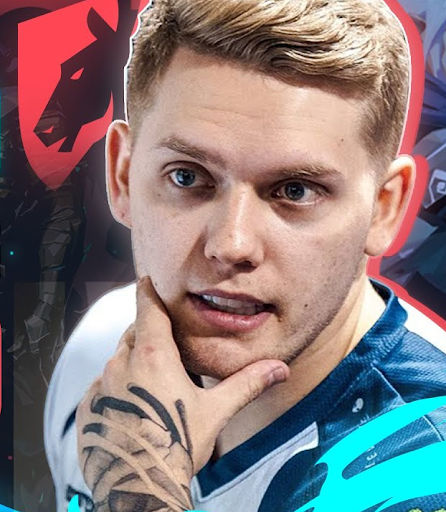
(Who could it possibly be?)
And you can bet we won't stop there. Liquid signed dozens of players in 2021, and there aren't any signs of stopping. What's coming next? Will we sign a Wild Rift team? Will we find players from new regions? Will we finally get a Zerg player for our StarCraft II roster? Stick around this year, and find out.
Community
It'd be easy to look at Liquid's competitive results in a vacuum, and be done with it. But Team Liquid has always been more than a professional team. Maintaining Liquid's core identity means cultivating and growing the sense of community that built this organization. To me, Liquid hit the mark in 2021. Liquid raised the bar for fan engagement and spearheaded initiatives to give back throughout the year.
Beginning with the official launch of Liquid+ in January, Liquid brought fan engagement to the next level. I think it really is an innovative system. Liquid+ incentivizes and rewards fans for engaging like nobody else in the business. Liquid hits a panoply of targets all at once with this one-of-a-kind platform. Firstly, it rewards fans for almost every interaction with the organizations. You get points every time you watch a video, or chat on a stream; you'll even get points for pretending to read this article.
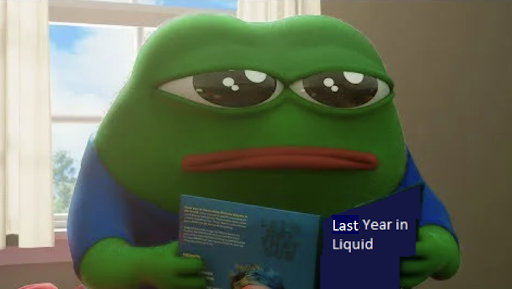
(Look, I get it. We're already 3,000 words in, and I've only talked about the LoL team for like 4 paragraphs.)
Liquid+ puts out a steady stream of experiences that encourage fans to get to know all of Team Liquid's players better, across the different rosters. It built a massive shop of rewards, from in-game currency to apparel that you can't get anywhere else. And not for nothing, some of the rewards themselves give fans unique ways to engage with their favorite players, like video shout-outs, or coaching sessions. But even outside the rewards system, Liquid+ has given an avenue for the Team Liquid content staff to profile the players with incredibly high-quality articles and videos. Liquid+ set up a spotlight of the month, giving insight into a new player every month, and culminating in a spotlight for the fans in December. Oh, and by the way, all this is completely free.
And that's just Liquid+; it doesn't even consider the rest of the content Liquid has piled up across the year. Through all of 2021, Liquid's content-makers have been absolutely slaying. 1UP studios never stopped producing the best videos in the scene between vlogs, Squad, and Origins. Hot Juans returned after a year-and-a-half hiatus to bring three more episodes, including a long-awaited hot-sauce heart-to-heart between Hbox and Mang0. And on April 26th, Leafeator dropped the very first episode TL;DW episode on Twitter. In an unbelievable coincidence that can only be called fate, Liquid's inaugural episode of the recap show dropped less than 24 hours after the first "This Week in Liquid" reddit post the night before.
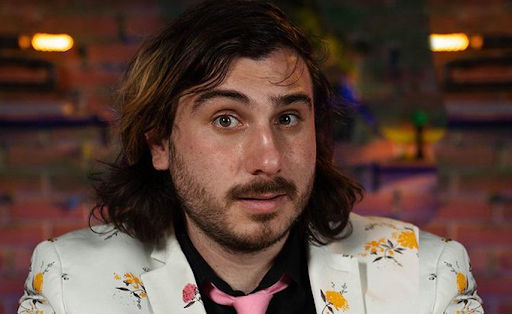
(Great minds think alike.)
But Team Liquid didn't just give back to the fans, it reached out much more broadly. Liquid ran the second annual LiquidHacks this past November, a hackathon stuffed with workshops to learn coding, panels discussing a range of topics related to esports and education, and dozens of projects hitting on themes like education, accessibility, and of course, Team Liquid. LiquidHacks 2.0 sparked some great projects, like an overlay providing visual cues in place of sound for hearing-impaired gamers, and a clicker game about becoming a professional gamer. In fact, 2021 doubled Liquid's hackathons; in June, Liquid hosted the first-ever PrideMakers, a hackathon followed the next week by a three-day pride fest to celebrate pride month.
Liquid—and a whole host of its players and content creators—also worked hard to raise money for great causes this year. Liquid hosted a Women in Esports Charity Poker Tournament with Aerial Powers and Fasffy in March, raising thousands of dollars for Give a Beat LA and the Joyful Heart Foundation. Liquid and Jersey Mike's also teamed up in March for the month of giving, sending it with a 24 hour stream between Alixxa, Hbox, Kurumx, and Mendo, and raising almost $12,000 for more than 200 local charities (presumably in the Los Angeles area). A couple months later, 72hrs did his own 24 hour charity stream to raise money for breast cancer research, raising $5,751.04. In October, Slysssa, Jonas, Mendo, and Harstem teamed up for another charity stream, raising $8,500 for Room to Read's mission to provide education to communities in Tanzania. And to cap off the year, a week before Christmas, the Apex squad won the ESA Foundation's $100,000 charity tournament, benefiting Black Girls CODE, Gameheads, and Girls Make Games.
So What's the Deal? Did Liquid Have a Successful Year or Not?
Well I think so, but I'm not here to make that call. Looking back, there's a lot to be proud of. From winning tournaments to expanding our roster of players, streamers, and staff, to reaching new heights of fan engagement that no one else in the scene is even close to, Liquid accomplished a lot. But I probably would have said that no matter what the org did this year. I don't think that's really the point of this post.
I just want us to have a place to gather and pause for a moment to reflect on the year. A place where we can celebrate moments where our team defied the world's expectations. Where we can recognize that when we fell short of expectations, the world didn't stop. Instead, we can use our failures as a springboard into 2022—a lesson to figure out what we can do better next time.
Team Liquid, like esports—like the world—is always changing. We can't stop it. Way back in January 2021, Liquid launched Blue into outer space, and I think that's a good metaphor for Team Liquid as a whole. It's a rocket ship, streaking through the stratosphere to a distant future yet unknown, and we can't stop it. But we can map out the trajectory based on where it's coming from, and we can use our failures to correct its course and velocity. And for a moment, we can gather at the beginning of a new year and watch it together as it flies through the air, and marvel at what we've built.
Writer // Tortious Tortoise
Graphics // Stacey "Shiroiusagi" Yamada















